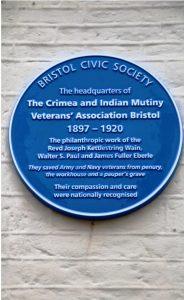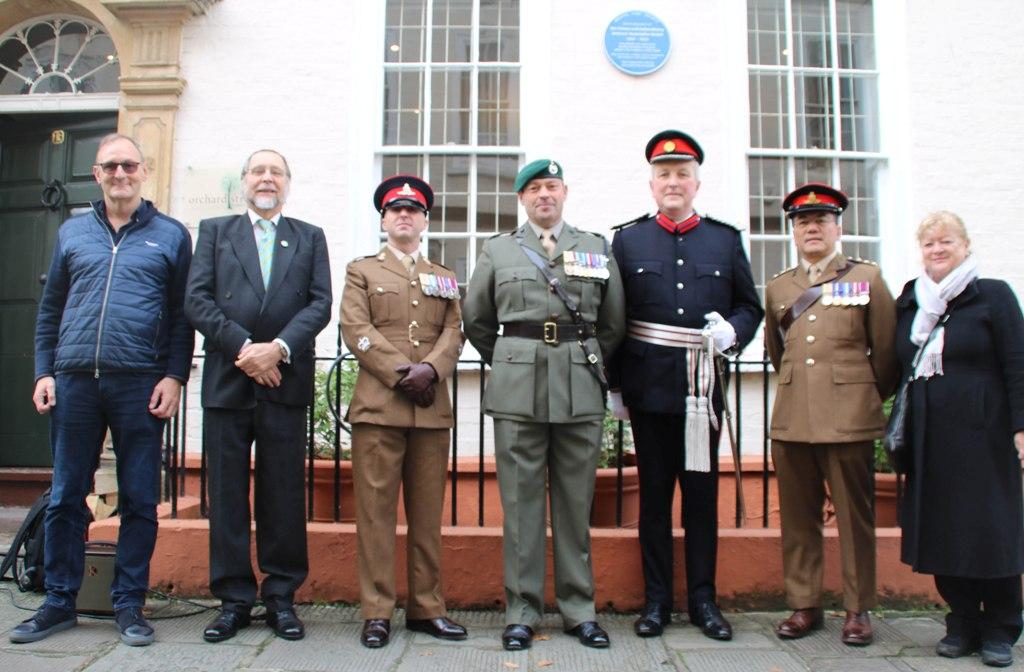On Wednesday, 23 November 2023 in Orchard Street, St Augustine’s, a blue plaque was dedicated to the Crimea and Indian Mutiny Veterans Association. Throughout the 1890s, various cities and towns in the British Isles attempted to set up Crimea and Indian Mutiny Veterans Associations with a view to helping needy veterans. Some were more successful than others. An attempt to establish a national association failed. Bristol however, was one of the most successful.
One newspaper of the time reported: “The poignant lot of the veteran who, after fighting the nation’s battles, finds himself in his old age face to face with all the sorrows of poverty and destitution, is one which calls for immediate remedy.” Three local men stepped up to offer a cure: Revd Joseph Kettlestring Wain and two businessmen – Walter Paul, and James Fuller Eberle, OBE. They viewed veterans as a particular sub-section of the deserving poor who warranted special treatment. Their Bristol unit was recognised as the best of its kind in the country.

Dr Glenn Fisher, the instigator of the plaque, told us of Royal Artilleryman James Graham, who in 1895 was in receipt of a pension of 8d. a day. In an extensive archive of the veterans association discovered in the cellar of Blaise Castle House there is a photograph of Graham: a pinched, hollowed-eyed, unsmiling face, his impressive array of four medals hanging from ragged ribbons on his coat. The association negotiated a pension increase to 1/6 a day, which lifted him from destitution.
It is at plaque unveilings and dedications that the potency of plaques (compared with statues) is thrown into sharp relief. Make no mistake, when you read the plaque’s narrative it physically links it to the building: it speaks of a life lived, and sterling work done, behind a facade.
It was a memorable experience to stand in Orchard Street on that cold, dull morning, the only colour provided by the uniformed attendees. Traffic opted to respectfully drive around us via the tight network of little streets behind the Hippodrome. We could feel the connection – through the tall doorway with its elegant Doric panelled pilasters and crowning open pediment would have walked the founders of the organisation: a curate, an architect, and Eberle, the city councillor for this ward, his carriage-building business had been two minutes’ walk away from us in St George’s Road.
And the military presence underlined what we were celebrating: Major Christopher Kedward RM and Major Bishu Ghale (thirty years with the Gurka regiment).
Thanks are due to Dr Glenn Fisher for bringing this application to the Panel’s attention; the Vice Lord-Lieutenant, Robert Bourns DL and to Diana Rebelo, sales manager at the Orchard Street Business Centre for her hospitality and refreshments following the dedication.
Gordon Young

